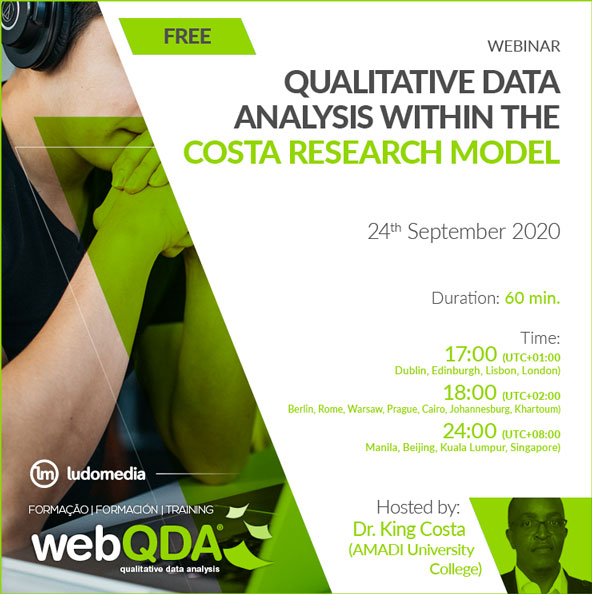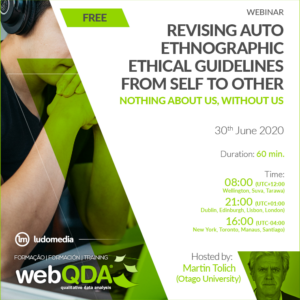Description
Webinar: Qualitative Data Analysis within the COSTA Research Model
The C.O.S.T.A. Research Framework is a tool that was developed to assist students and novice researchers to navigate postgraduate studies with clarity and understanding. The emphasis of the method is on a five step approach comprising of (1) Concepts in research that are foundational to research language; (2) Objective of research which is being undertaken – likened to development of protocol or proposal; (3) Situation, emphasizing pre-comprehension of the current debate, likened to literature review; (4) Tact, which deals with methodological approaches to formulation of conclusions; (5) Assessment of output – ability to make judgments on trajectory followed and study results.
This current study focused on the use of thematic analysis by students and novice researchers in completion of their research reports and scientific writings, which essentially forms part of Stage 4 of the C.O.S.T.A Framework. The author used a systematic mapping review to select units of analysis for the sole purpose of demonstrating gaps and inconsistencies on the application of the concept of thematic analysis. In most research reports, students demonstrate clear articulation of methods in coding and themes generation, however, evidence of these codes and how themes were generated was not reflected on most of reports reviewed. This situation seems to be a prevalent in most research reports, which detailed explication of interpretation of participant’s comments during interviews taking the prominent feature of presentation of results/findings section.
It is for this reason that the C.O.S.T.A. Research Framework (Costak, 2019) is proposed as one of the methods for teaching students about different methods of qualitative data analysis in general and thematic analysis in particular.




Reviews
There are no reviews yet.